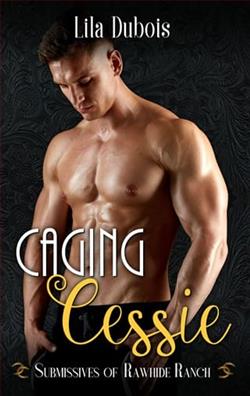Page 102 of Rescued By the Alpha SEAL
"Nice save, Ghost One."
Granger's voice slides through the static like oil on water. My blood runs cold, but my pulse remains steady.
"But tell me—how many more lives are you willing to risk for a truth that'll never save you?"
32
SLOANE
The second file is smaller—unassuming in its digital presence, yet it makes my throat tighten just looking at it.
No fancy encryption this time.
No countdown timer ticking away precious seconds while a child's life hangs in the balance.
Just a simple text document with two names that slice through my carefully constructed defenses:
SLOANE CARTER.
DANIEL CARTER.
My finger hovers over the trackpad, trembling slightly. Part of me wants to close the laptop, walk away, pretend I never saw this. But I've spent too many years chasing ghosts to stop now.
I click.
At first glance, it's just a bureaucratic skeleton—dates, reference numbers, filing codes that predate most digital archives. But then I see it: the header that makes my heart stutter.
ORCHID PROTOCOL
The words hit me like a physical blow.
I've seen them before, years ago, buried in a heavily redacted whitepaper. One line had been blacked out so aggressively it actually broke the scanner trying to read through the ink.
I remember staying up all night, trying every trick I knew to recover even a fragment of what lay beneath that dark bar.
But here it is now. Uncensored. Untouched. Like a time capsule someone forgot to bury.
A whistleblower report dated 2006.
Signed:Daniel Carter
My hands go numb. The room suddenly feels too small, too warm, like all the oxygen has been sucked out through invisible vents.
I force myself to breathe—in through my nose, out through my mouth—the way my father taught me when I'd get overwhelmed during soccer practice.
Soccer practice.
The memory hits unexpectedly. Was that really only a few months before he...?
I shake it off. Focus on the screen.
The first paragraph is typical government speak—carefully measured words designed to raise concerns without setting off immediate alarms.
My father was always good at that, walking the line between revelation and revolution. But halfway down the page, something changes.
His voice breaks through the bureaucratic armor:
"If this is read posthumously, please know—I didn't walk away from the truth. I buried it to protect the one thing worth more."















